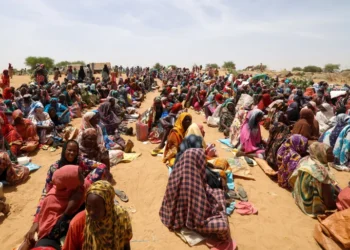President Donald Trump, having this week signalled a possible withdrawal of American troops from Syria, has ordered the state department to suspend more than $200m (£140m) in funds for recovery efforts there while the administration reassesses its role in the conflict, administration officials said on Friday.
The freeze on stabilisation and humanitarian aid came as two members of the US-led coalition fighting in Syria were killed – one US soldier and one British – and five others were wounded by a bomb in a late night attack, the military said on Friday.
The attack took place near Manbij in northern Syria and is believed to have been carried out by remnants of Isis, a senior US military official said.
A statement posted by the US Central Command, which directs US forces in the region, said “an improvised explosive device” detonated about 11pm local time on Thursday.
The statement did not reveal the identities of the service members involved, how seriously the survivors were hurt or where in Syria the attack occurred. The US-led coalition includes about 30 countries, but only a few have forces on the ground.
A statement released Friday by the Ministry of Defence in Londonconfirmed that the second soldier killed in the blast was British and that the mission was to counter fighters with Isis.
Coalition forces have been deployed to Syria to fight, alongside Kurdish militia allies, against Isis. But with that group largely routed, the seven-year-old civil war in Syria has entered a dangerous new phase.
Two US allies, Turkey and the Kurds, who control parts of northern Syria, are fighting each other. And the Kurds and coalition forces are engaged in a tense standoff with the Syrian government, along with its allies – Russia, Iran and Iranian-backed militias.
On Thursday, Mr Trump suggested the US could pull its approximately 2,000 troops out of Syria “very soon”. The comments surprised defence department officials who have maintained that some kind of US presence in parts of Syria may be necessary to avoid recreating the conditions that led to the rise of Isis – and also to avoid ceding influence in the country to Russia.








